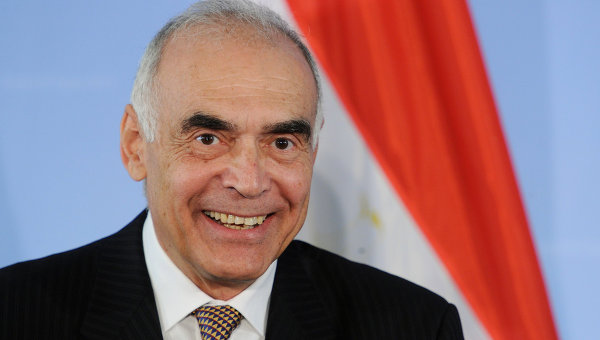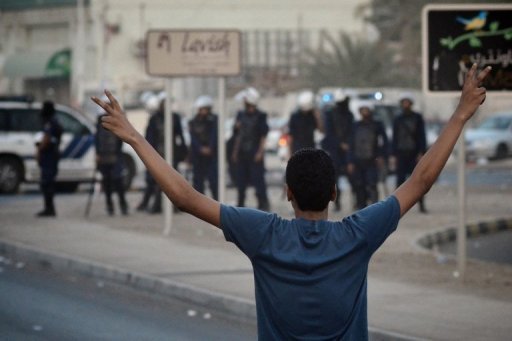
(AFP Photo)
Rallies across Egypt calling for the reinstatement of ousted President Mohamed Morsi left 1 dead and 34 injured, according to Ministry of Health spokesperson Khaled Al-Khatib.
Protests were held in Cairo, Alexandria, Ismailia, Suez and Damietta from mosques after Friday prayers. Small-scale skirmishes took place between demonstrators and locals, with the police and armed forces interfering to prevent an escalation of violence in several areas.
“The role of the Ministry of Interior on Friday was to stop any clashes between locals and Morsi supporters,” Ministry of Interior spokesperson Mohamed Menady said. “This happened in Alexandria and Giza, where the police intervened to pull the two parties apart.”
Morsi supporters clashed with residents of the Al-Shatbi neighborhood in Alexandria, which prompted security forces to fire tear gas to disperse the crowds. In Dokki, skirmishes between Morsi supporters and locals led to the throwing of rocks and glass bottles, before the police and army intervened to end the confrontation.
The protests were an answer to calls made by the National Coalition for Legitimacy, Muslim Brotherhood and the Anti-Coup Youth Movement for a Friday of rallies, dubbed “Youth are the Pillars of the Revolution.”
The groups’ ability to mobilize supporters has waned in the past weeks due to a heavy security crackdown on the Muslim Brotherhood, which has placed many of its top leaders and members under arrest.
The Friday protests are said to have witnessed the lowest turnout of pro-Morsi groups as of yet, according to Menady, who added that the size of the rallies were “remarkably small.”
When asked why the state of emergency has been extended for two months despite the fading presence of pro-Morsi demonstrations, Menady said that the law is in place to guarantee national security on a scale that is more comprehensive than the threat of violent protests.
The pro-Morsi groups have called on Egyptians to protest everyday of the first week of the new academic year, and take part in a civil disobedience movement by refraining from going to work on Sunday.



